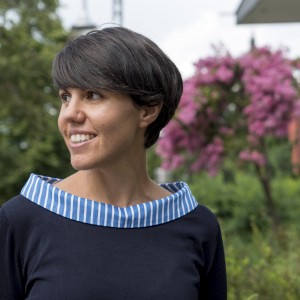Verena Wisthaler, Ph.D.
verena.wisthaler@eurac.edu
Eurac Research

Address: Drususallee 1
City: Bozen/Bolzano - 39100
Country: Italy
About Me:
I am a senior researcher at EURAC Research (I), within the Institute for Minority Rights, and a post-doc researcher at the University of Neuchâtel (CH), at the Swiss Forum of Population and Migration Studies, where I also teach a course on migration policies. I a PhD in Political Science from the University of Leicester (2016). During my PhD I was visiting researcher at the European University Institute in Florence, the University of Corte (FR) and the University of Edinburgh (UK). My research focusses on immigrant integration at the regional and local level. I have published in JEMS, Studies in Ethnicity and Nationalism, Politika etc. My PhD has been awarded the 2017 ECPR Jean Blondel PhD Prize.https://scholar.google.ch/citations?user=vIvD1oUAAAAJ&hl=de
Research Interests
Immigration & Citizenship
Political Participation
Public Policy
Refugees
Race, Ethnicity and Politics
State and Local Politics
Minority Rights
Political Parties
Immigrant Integration Policies
Civic/political Discourse
Nationalism, National Identity
Sub-state Nationalism
Countries of Interest
Italy
Austria
Spain
United Kingdom
Publications:
Journal Articles:
Using South Tyrol as a case study, this article analyses how boundaries between groups and their institutionalisation through power-sharing arrangements affect the politics of immigrant integration. Through a longitudinal qualitative analysis of party manifestos, the article focuses on the period between 1993 and 2013 to evaluate the immigration and integration discourses of political parties, claiming to represent the German and Ladin minorities. It is argued that these parties have deliberately framed immigration as a challenge to the strength of their respective cultures and languages, as well as the array of institutions that support the separate but equal coexistence of South Tyrol's linguistic groups. The consequence of this tendency to ‘think in groups’ is that the main political parties of the German and Ladin minorities are shoring up group boundaries and advancing an assimilationist model of immigrant integration.
with Sanjay Jeram and Arno van der Zwet How do sub-state nationalists respond to the growing presence of cultural diversity in their ‘homelands’ resulting from migration? Sub-state nationalists in Europe, in ‘nations without states’ such as Catalonia and Scotland, have been challenging the traditional nation-state model for many decades. While the arguments in favour of autonomy or independence levelled by these movements have become more complex, sub-state nationalist movements remain grounded by their perceived national community that is distinct from the majority nation. Migration to the ‘homeland’ of a sub-state nation, then, presents a conundrum for sub-state elites that we label the ‘legitimation paradox’: too much internal diversity may undermine the claim to cultural distinctiveness. We engage with three common intervening variables thought to influence how sub-state nationalists confront the ‘legitimation paradox’: civic/ethnic nationalism, degree of political autonomy, and party competition. Our overarching argument is that none of these factors have a unidirectional or determinate effect on the sub-state nationalism-immigration nexus, which is why the nuanced case studies that comprise this Special Issue are worthwhile endeavours.
This article focuses on the educational system in South Tyrol as one of the pillars of language and identity politics used for minority protection and elaborates on possible future developments triggered by immigration. After a historical overview of the coexistence of the three linguistic groups in South Tyrol, the article will explore, from the perspective of the educational system, the institutional framework guaranteeing the protection of the German‐speaking and Ladin minority and in particular their languages as the most important markers of the particular local identities. The article then examines how the educational system in South Tyrol deals with increasing immigration, assessing the strengths and weaknesses in relation to whether the educational system facilitates, on the one hand, the development of a multilingual society and, on the other, individual language competences and thus individual multilingualism.